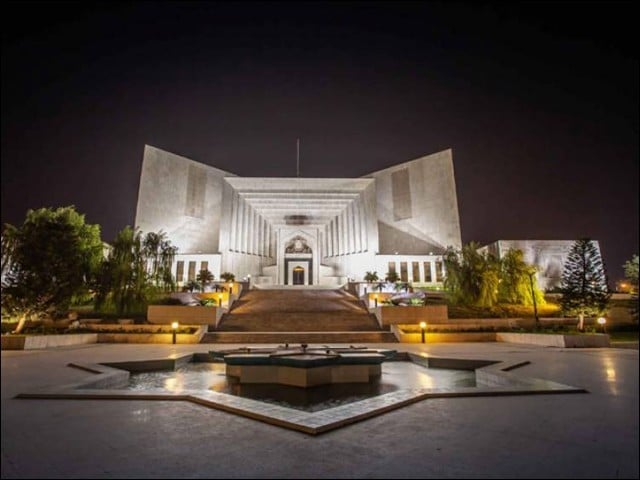SC to rule on lifetime disqualification
Contradiction between judicial decision and parliamentary legislation set to be resolved

The Supreme Court will resolve the contradiction between the judicial decision and the parliamentary legislation on whether disqualification under Article 62 of the Constitution means for life or five years.
Military ruler Gen Ziaul Haq added Article 62(1)(f) to the Constitution through the 8th Amendment. Interestingly, in the last 38 years, no elected government could abrogate Article 62(1)(f), which was included in the Constitution during the era of dictatorship.
When a five-member larger bench of the Supreme Court disqualified PML-N supremo and former premier Nawaz Sharif in the Panama Papers case under Article 62(1)(f) for failing to declare unclaimed wages earned as an executive of a Dubai-based company owned by his son , the question arose as to how long the period of his ineligibility to contest the polls would last.
Then a larger bench, it its judgment authored by former Chief Justice of Pakistan Umar Ata Bandial, ruled that the disqualification period under Article 62(1)(f) would be for life. Similar to the one that decided the Panama Papers case, Justice Ijazul Ahsan was also a member of the bench that set the term of disqualification for life.
Read Disqualification: CJP Isa flags glaring mismatch
An SC judge, Justice (retd) Azmat Saeed Sheikh, who was a member of the same bench, wrote in his opinion that the top court had the authority to interpret the Constitution but not to amend it.
Senior politician Jahangir Tareen, who was previously affiliated with the PTI and then went on to found the Istehkam-e-Pakistan Party this year, also faced lifelong disqualification under Article 62(1)(f). Legal experts have termed the disqualification of a politician under Article 62(1)(f) as equivalent to life imprisonment.
In the last week of June this year, parliament through Section 232 of the Election Act (Amendment) Bill, set the period of disqualification to five years under Article 62(1)(f).
In the last six months, the Election Act (Amendment) Act, 2023 has never been challenged in any court. Now the matter of Section 232 will be heard in the SC, which had already recognised the supremacy of parliament.
Read SCBA set to challenge lifetime disqualification of MPs
On the one hand, there is the decision of the five-member larger bench of the SC, and on the other, Article 232 of the Election Act (Amendment) Act.
CJP Qazi Faez Isa has now decided to constitute a larger bench on the issue of judicial decision of lifetime disqualification under Article 62(1)(f) as well as the conflict of law and referred the matter to the SC’s three-member committee.
The three-member committee is headed by CJP Isa, while the other two members are Justices Sardar Tariq Masood and Ijazul Ahsan. Interestingly, Justice Ahsan, a member of this panel, was a part of the benches, which decided the Panama Papers case as well as the disqualification for life under Article 62(1)(f).
It is pertinent to note here that the top court had previously recognised the supremacy of parliament in the SC (Practice and Procedure) Act. Apart from this, a constitutional petition filed by the Supreme Court Bar Association is also pending, requesting the SC not to disqualify a politician directly under Article 62(1)(f) itself, but to allow the trial court to make that decision. It is likely that all such cases will be clubbed together and scheduled for hearing.



















COMMENTS
Comments are moderated and generally will be posted if they are on-topic and not abusive.
For more information, please see our Comments FAQ